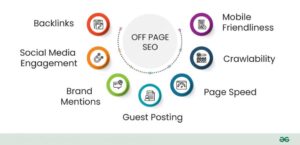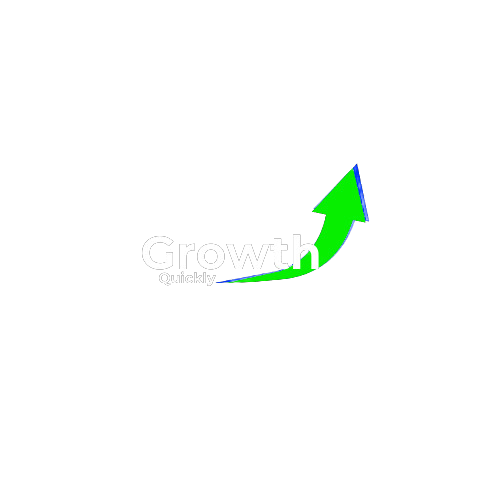Local SEO Optimization: Local SEO is crucial for businesses targeting specific geographic areas. Optimizing for local search involves creating Google My Business listings, obtaining local citations from directories and review sites, and optimizing website content for location-based keywords. By implementing these strategies, businesses can improve their visibility in local search results, attract more foot traffic to physical locations, and gain a competitive edge in their target markets.
Off-page SEO? Content Syndication and Repurposing: Content syndication and repurposing involve distributing and adapting content across various platforms to reach a wider audience and attract backlinks. This can include republishing blog posts on industry-specific websites, creating videos or infographics based on existing content, and sharing content snippets on social media platforms. By diversifying content formats and distribution channels, businesses can maximize their content’s reach and impact while attracting valuable backlinks from authoritative sources.
Influencer Marketing: Influencer marketing leverages the influence and reach of individuals or brands within a specific niche to promote products, services, or content. Collaborating with influencers in your industry can help amplify your message, increase brand awareness, and attract high-quality backlinks from their followers. Identifying and engaging with relevant influencers requires thorough research and relationship-building efforts, but the long-term benefits can be substantial in terms of enhanced brand visibility and credibility within your target market.
Link Reclamation: Link reclamation involves identifying and reclaiming lost or broken backlinks to your website. This can include reaching out to webmasters to request link reinstatement for pages that have been moved or renamed, fixing broken links pointing to your site, and updating outdated or incorrect information. By proactively monitoring backlinks and addressing issues promptly, businesses can maintain a healthy backlink profile and preserve the authority and ranking power of their website.
Off-page SEO? Measuring Off-Page SEO Success: Tracking the effectiveness of off-page SEO efforts requires monitoring key metrics and performance indicators over time. Backlink analysis tools such as Moz’s Link Explorer or Ahrefs’ Site Explorer provide insights into the quantity, quality, and diversity of backlinks pointing to your website.
Social media analytics platforms like Sprout Social or Hootsuite can track engagement metrics such as likes, shares, and comments across various social media channels. Online reputation monitoring tools such as Google Alerts or Mention can help businesses track mentions, reviews, and sentiment about their brand across the web. By regularly analyzing these metrics and adjusting off-page SEO strategies based on performance data, businesses can optimize their efforts for maximum impact and long-term success.
Future Trends in Off-Page SEO: Emerging trends in off-page SEO are shaping the future of digital marketing strategies. User experience signals, such as page load speed and mobile-friendliness, are becoming increasingly important ranking factors for search engines like Google. Voice search optimization is also gaining prominence as more users rely on voice-activated assistants like Siri and Alexa to find information online.
Additionally, advancements in artificial intelligence and machine learning are expected to influence off-page SEO practices, with algorithms becoming more sophisticated in understanding user intent and delivering personalized search results. By staying abreast of these trends and adapting their off-page SEO strategies accordingly, businesses can maintain a competitive edge in the ever-evolving digital landscape.
Case Studies and Examples: Real-world examples of successful off-page SEO campaigns illustrate the effectiveness of various strategies and tactics. For instance, a local bakery implemented a comprehensive local SEO strategy, including optimizing their Google My Business profile, obtaining positive reviews on Yelp and other review sites, and participating in community events.
As a result, they saw a significant increase in online visibility, foot traffic to their store, and revenue. Similarly, a software company engaged in influencer marketing by partnering with industry thought leaders to create educational content and share it with their followers. This led to a surge in website traffic, backlinks from reputable sources, and brand recognition within their target audience. These case studies demonstrate the tangible benefits of off-page SEO when implemented strategically and consistently over time.
Off-page SEO? FAQs About Off-Page SEO: Common questions about off-page SEO often revolve around the time it takes to see results, the potential risks of certain tactics, and the best practices for building high-quality backlinks. While off-page SEO is a long-term strategy that requires patience and persistence, businesses can start seeing improvements in their search engine rankings and website traffic within a few months of implementing effective off-page SEO techniques.
However, it’s essential to avoid black hat SEO tactics, such as buying links or engaging in link schemes, as these can result in penalties from search engines and harm your website’s reputation in the long run. Instead, focus on creating valuable, shareable content that naturally attracts backlinks from authoritative sources, and prioritize building genuine relationships with influencers and other industry stakeholders. By following ethical SEO practices and staying updated on industry trends, businesses can achieve sustainable growth and success in the competitive online marketplace.
Local SEO Optimization: Local SEO is an integral aspect of Off-page SEO strategies, particularly for businesses aiming to target specific geographic regions. Optimizing for local search involves various tactics, such as claiming and optimizing Google My Business listings, obtaining citations from local directories, and ensuring consistency across online platforms. By prioritizing these strategies, businesses can enhance their Off-page SEO efforts and improve their visibility in local search results, thereby attracting more qualified leads and customers.
Content Syndication and Repurposing: Content syndication and repurposing are valuable Off-page SEO tactics that can significantly boost a website’s visibility and authority. When content is syndicated across reputable platforms and repurposed into different formats (such as videos, infographics, or slideshows), it not only reaches a broader audience but also attracts valuable backlinks from diverse sources. By leveraging these strategies effectively, businesses can strengthen their Off-page SEO profile and establish themselves as authoritative voices within their respective industries.
Influencer Marketing: Influencer marketing plays a pivotal role in Off-page SEO by leveraging the reach and influence of prominent figures in a particular niche. Collaborating with influencers to endorse products, services, or content can generate significant buzz, increase brand awareness, and naturally attract backlinks from their followers. Incorporating influencer marketing into Off-page SEO strategies can yield tangible results in terms of improved search engine rankings, heightened online visibility, and enhanced credibility within the target audience.
Off-page SEO? Link Reclamation: Link reclamation is a proactive Off-page SEO tactic aimed at reclaiming lost or broken backlinks to a website. By identifying instances where backlinks to valuable content have been lost due to factors like URL changes or website migrations, businesses can reach out to webmasters to request link reinstatement or correction. Link reclamation not only preserves the authority of the website but also strengthens its Off-page SEO profile by ensuring that valuable backlinks are retained and actively contributing to search engine rankings.
Measuring Off-Page SEO Success: Monitoring the effectiveness of Off-page SEO efforts requires a comprehensive approach that encompasses various metrics and performance indicators. Backlink analysis tools, such as Ahrefs or SEMrush, allow businesses to track the quantity, quality, and relevance of backlinks pointing to their website. Social media analytics platforms, such as Buffer or Sprout Social, enable businesses to monitor engagement metrics and assess the impact of their social media efforts on Off-page SEO.
Online reputation management tools, like Brandwatch or Mention, facilitate the monitoring of brand mentions, reviews, and sentiment across the web. By regularly analyzing these metrics and adjusting Off-page SEO strategies based on insights gained, businesses can optimize their efforts for maximum impact and long-term success.
Future Trends in Off-Page SEO: As the digital landscape continues to evolve, future trends in Off-page SEO are poised to shape the strategies and tactics employed by businesses seeking to enhance their online presence. With search engines placing increasing emphasis on user experience signals, such as page load speed and mobile-friendliness, Off-page SEO strategies will need to prioritize factors that contribute to a seamless and engaging user experience.
EAdditionally, the rise of voice search and the proliferation of smart devices are expected to influence Off-page SEO practices, necessitating adaptations to accommodate the changing preferences and behaviors of users. By staying abreast of these emerging trends and proactively adjusting their Off-page SEO strategies, businesses can maintain a competitive edge in the dynamic digital landscape.
Case Studies and Examples: Real-world case studies provide tangible evidence of the effectiveness of Off-page SEO strategies in driving tangible results for businesses across various industries. For example, a local restaurant implemented a comprehensive Off-page SEO campaign that included optimizing their Google My Business listing, obtaining citations from local directories, and actively engaging with customers on social media platforms.
As a result, the restaurant saw a significant increase in online visibility, foot traffic, and revenue. Similarly, a software company collaborated with industry influencers to create and promote educational content that resonated with their target audience. This approach not only generated buzz and brand awareness but also resulted in a substantial increase in website traffic and backlinks from authoritative sources. These case studies highlight the importance of Off-page SEO in achieving measurable outcomes and driving sustainable growth for businesses in today’s competitive digital landscape.

